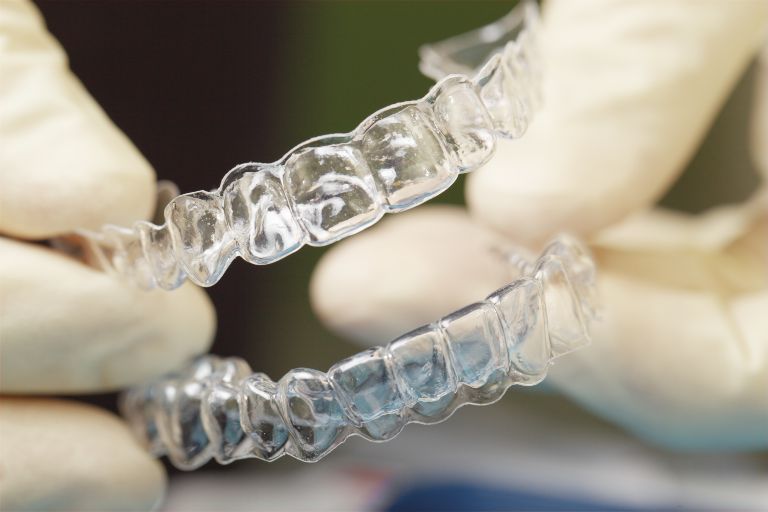
Toothaches—which are characterized by soreness, pain, or an ache in your tooth or the surrounding area—are never a pleasant experience and can be incredibly frustrating. Toothaches often cause your teeth to be far more sensitive to hot or cold temperatures than they usually are. Biting or chewing also becomes painful and almost unbearable.
Your teeth might be under duress for any number of reasons, but the most common of those reasons are:
These are all the most common reasons for toothaches and tooth pain, but in this article, we’re going to focus in a little more on subconscious bad habits, such as bruxism.

Bruxism can be a mild condition, but it can also be rather intense, inducing pain and discomfort and resulting in damage over time. It is actually a rather common condition. It is characterized by teeth grinding and jaw clenching, mostly while the person is asleep. It mostly affects the teeth and jaws, inducing pain, soreness, and sometimes injury to the teeth. It can wear down the enamel on your teeth, leaving them susceptible to further damage. It often results in chronic jaw soreness or pain in the neck and/or face that can plague you throughout the day. The tension brought on by bruxism can bring dull headaches that start around the temples and work their way backward. Bruxism can also result in the person biting their cheeks or tongue. The exact reason for bruxism is still unknown, but doctors suggest that it might have something to do with dreaming or being nervous or aroused during sleep.
Bruxism can also be experienced while awake, sometimes because of nervousness, but also due to illicit substances. MDMA, otherwise known as “molly,” is an illegal drug that brings on heavy euphoria but also brings bruxism with it. People who take MDMA experience jaw clenching, teeth grinding, as well as cheek and tongue biting.
The difference between “awake” bruxism and “asleep” bruxism is that when you have the sleeping variant, you are likely to be free of jaw tension and teeth grinding while awake and experience it pretty much only when sleeping. Victims of “awake” bruxism begin to have problems shortly after waking up and the condition worsens over the course of the day.
The average person who suffers from sleep bruxism goes through nightly episodes, though generally bruxism activity varies from person to person. Each nightly episode is made up of RMMA (rhythmic masticatory muscle activity), or muscle activity in the jaw, at the approximate rate of once per second. They will also experience sporadic grinding of the teeth throughout the night.
During the course of a routine dental exam, a dentist will keep his eye out for any signs of bruxism in the patient, such as extensive too damage, jaw pain or tenderness, and damage to bones and/or cheek muscles on the inside of the mouth. If any of these signs are spotted, your dentist will likely suggest a few measures to help control bruxism.
Specialists classify bruxism as a “parafunctional activity,” meaning the habitual routine use of a part of the body for something that is not its primary function. The jury is still out, however, on whether bruxism is an involuntary action like a muscle spasm or a subconscious habit. Though there hasn’t been one common cause assigned to bruxism, most experts agree that there are multiple factors that contribute to or lead to bruxism.
The circadian rhythm, also known as the natural sleep cycle, dictates the stages of sleep for each person. The neurotransmitters and mechanisms affecting sleep arousal episodes are controlled by the central nervous system. A person with abnormalities in their nervous system might experience these arousal episodes when the depth level of sleep changes and this can bring on bruxism.
Age can also be a factor, as bruxism occurs mostly in children and teenagers under the age of 18. Often as people get older the symptoms of bruxism tend to dissipate.
A large number of people with bruxism say that they have at least one parent or child, hinting that the condition could also be hereditary. Although the specific genetic markers haven’t yet been pinpointed, the statistics alone suggest that’s it’s a strong possibility.
Cigarette smokers are more often than not twice as likely to develop symptoms of bruxism as non-smokers are. It has been proven that nicotine affects the way dopamine is released within the body. Dopamine is an organic chemical which functions as a neurotransmitter for activity in the brain, and as we’ve covered earlier, neurotransmitters directly affect our sleep cycles.
Some prescribed medication, like certain serotonin reuptake inhibitors, amphetamines, dopamine agonists and antagonists, can exacerbate the symptoms of bruxism. For those who suffer from bruxism and take these drugs, reducing your daily dosage can decrease the symptoms of bruxism-related symptoms.
All in all, if you’re looking to control the effects of night bruxism, then your best bet is to get a bruxism mouth guard that you can use while you sleep. There is a wide variety of models you can choose from, but overall you have three basic types available:

Treatment for bruxism is not necessary in most cases. Most kids will grow to leave behind symptoms of bruxism without having to undergo treatment, and a majority of adults with bruxism don’t clench or grind their teeth quite hard enough to warrant therapy. There are, however, cases where bruxism is more severe and for those cases, therapies, medications and certain dental approaches can help prevent any more damage to the teeth as well as relieve pain or discomfort in the jaw.
Dental approaches you might want to take include splints and mouth guards, and dental correction. Mouthguards will help protect your teeth from grinding and clenching. Dental correction involves reshaping the surfaces of your teeth that you use for chewing, and possibly using crowns to repair any damage.
There aren’t any medications as of yet that will help cure the symptoms of bruxism completely, but there are a few that you can use that might ease the symptoms a little. These include muscle relaxants you can take before bed, botox injections, or medication for stress or anxiety. Please consult your doctor before taking any of these medications for bruxism.
Some other approaches you might want to take involve things you can do in your personal daily life. Managing the amount of anxiety or stress in your life through breathing exercises and meditation may help. Changing the behaviour of the way you hold your mouth and jaw by trying to loosen up and reduce tension may be helpful as well.
Bruxism can be a real nuisance, but the good news is that it’s likely not too serious. If you are, in fact, feeling pain and jaw cramps or getting tooth damage, then consult your health professional for good advice on which route to take toward controlling the symptoms.

